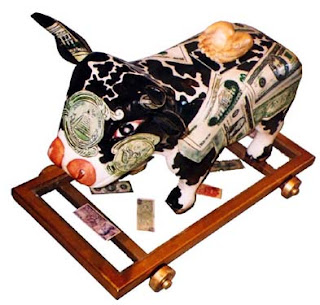The Plumber is Fixing Everything
Thursday, July 30, 2009
I wish I could believe Obama but the umbers there just do not add up. Let us look at unemployment as an example of how the numbers are not what they seem. In Oregon, a state in the North Western part of the US just above California, Obama’s stimulus created 7,500 jobs – or at least that is the claim they are making. Now while it is true that those jobs were created, they were not permanent – in fact, most of them were no more than 37 hours, about 1 weeks’ worth of work.
Considering that they spent over 10 million dollars creating those jobs, you would think that 7,500 people would still be employed, in fact close to 74% of the recipients of those jobs are no longer in those jobs and are not eligible for unemployment insurance as they did not work long enough at this job to qualify for the benefits.
So, you can take 7,500 people off the unemployment lines, or more specifically, off the books – but the fact remains that they are still jobless. Forex Traders need to have all the information before making trades, they cannot rely on words alone as many times the choice of words used are meant to deceive.
Padding the numbers is not going to make things better, action will. And Obama seems intent on continuing his spending – overpaying for things like cheese and ham and toilet seats in the name of stimulating the economy.
A Federally subsidized program that repairs public toilets cost the taxpayers more than 18 Million Dollars, the total number of toilets that were repaired were 993, that is a total of 18,127 Dollars per toilet. I don’t know about you, but I would like one of those I my house.
I could use it to truly be presidential in my own home by flushing my Dollars down the drain.










